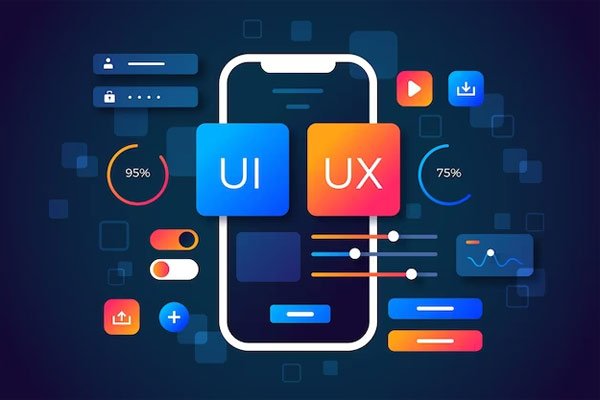Description
UI/UX Designer Course Curriculum
🧠 Module 1: Introduction to UI/UX Design
-
What is UI and UX? How are they different?
-
Importance of design in product success
-
Overview of product design process
-
Design mindset: empathy, problem-solving, creativity
-
Popular UI/UX tools (Figma, Adobe XD, Sketch)
🔍 Module 2: UX Research & Discovery
-
Understanding user needs and behaviors
-
Types of research: qualitative vs. quantitative
-
User interviews, surveys, personas
-
Competitor analysis and market research
-
Defining user journey maps & empathy maps
🧭 Module 3: UX Design Principles
-
Design thinking process (Empathize → Define → Ideate → Prototype → Test)
-
User flows and task flows
-
Information Architecture (IA)
-
Wireframing: low-fidelity to high-fidelity
-
Tools: Figma, Balsamiq, Lucidchart
🎨 Module 4: UI Design Fundamentals
-
Principles of visual design (contrast, hierarchy, alignment)
-
Typography, color theory, iconography
-
Spacing, grids, and layouts
-
Designing for responsiveness (web, tablet, mobile)
-
UI Kits and design systems
🛠️ Module 5: UI/UX Tools in Practice
-
Figma: frames, components, auto-layouts, prototyping
-
Adobe XD: artboards, interactions, design specs
-
Sketch: symbols, vector editing, plugins
-
Zeplin, InVision, Overflow (for handoff and collaboration)
🧪 Module 6: Prototyping & User Testing
-
Creating interactive prototypes (Figma/Adobe XD)
-
Conducting usability tests
-
A/B testing and heatmaps
-
Gathering and analyzing feedback
-
Iterating based on test results
🌐 Module 7: Web & Mobile Design Best Practices
-
Designing for web vs. mobile vs. apps
-
Accessibility and inclusive design (WCAG standards)
-
Responsive & adaptive design patterns
-
Navigation, buttons, forms, and error states
🧩 Module 8: UX Writing & Microcopy
-
Writing clear, helpful, and engaging microcopy
-
UX writing for onboarding, CTAs, error messages
-
Tone, voice, and brand alignment in text
🚀 Module 9: Portfolio Development
-
Choosing case studies for your portfolio
-
Documenting your design process: research → solution
-
Creating impactful presentations
-
Hosting your portfolio on Behance, Dribbble, or personal website
💼 Module 10: Working in the Real World
-
Agile & Scrum for designers
-
Collaboration with developers and product teams
-
UI handoff process (Zeplin, Figma Inspect)
-
Design critiques and feedback loops
-
Freelancing, job hunting & interview tips
🎓 Capstone Project
-
End-to-end project: UX research → UI design → prototype
-
Work on a real-world app or website redesign
-
Submit design rationale and user testing results
-
Present to peers/instructor panel
🏅 Optional Certification Preparation
-
Google UX Design Certificate
-
Adobe Certified Professional in UX Design
-
Human-Computer Interaction (HCI) Fundamentals (Coursera/Interaction Design Foundation)
🎯 Ideal For:
-
Beginners in design or career switchers
-
Graphic designers transitioning to UI/UX
-
Entrepreneurs, developers, and product owners
-
Anyone looking to design websites or mobile apps





Reviews
There are no reviews yet.